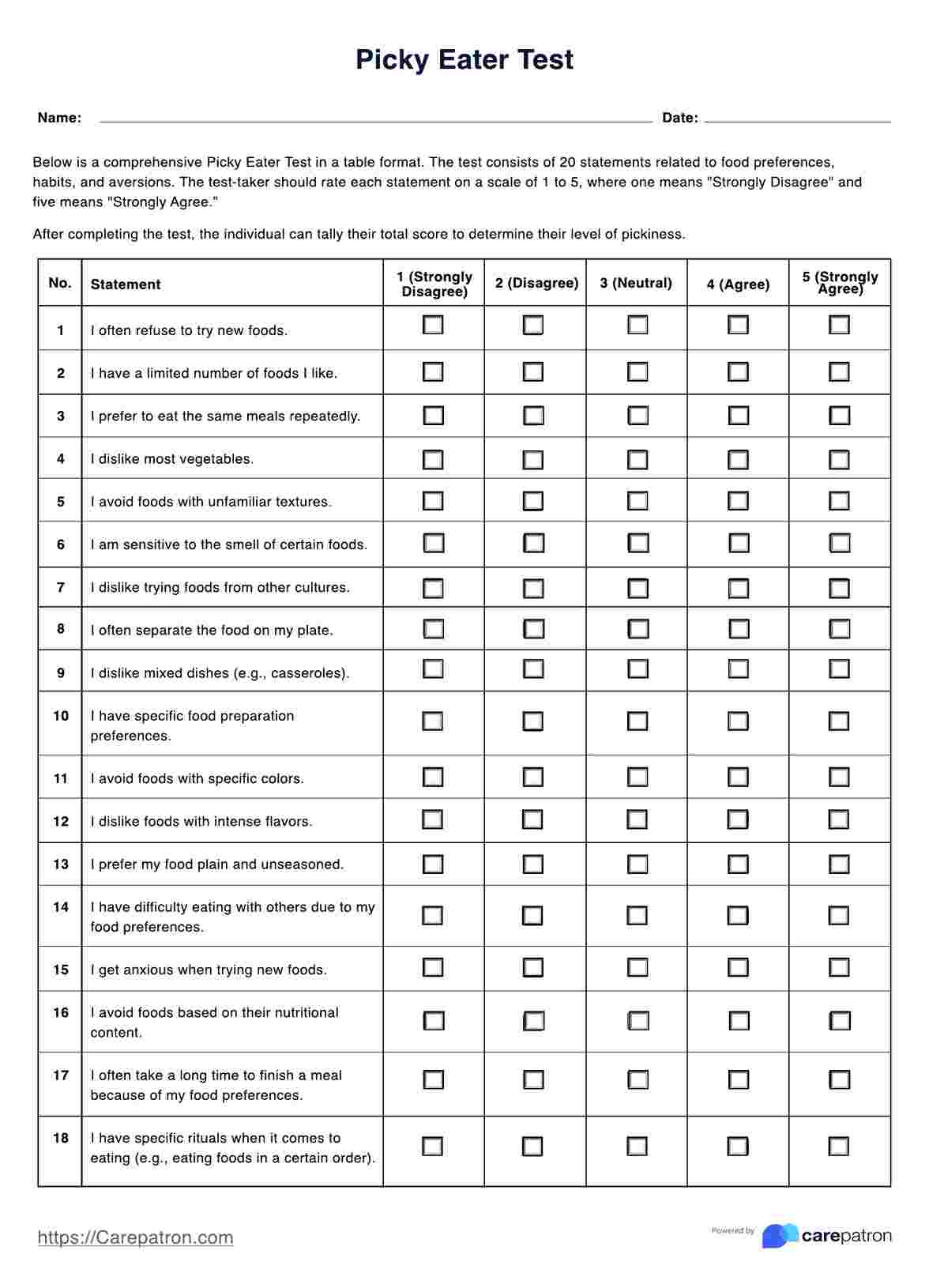The Picky Eater Test was developed by a team of experts in nutrition, psychology, and education to provide a comprehensive and reliable way to assess picky eating habits.

Picky Eater Test
Discover our comprehensive Picky Eater Test and learn how to identify picky eating habits. Download our free PDF and assess your food preferences today!
Picky Eater Test Template
Commonly asked questions
To use the Picky Eater Test, download the free PDF, read through the 20 statements related to food preferences, habits, and aversions, and rate each statement on a scale of 1 to 5. After completing the test, tally your total score and use the provided scoring interpretation guide to determine your level of pickiness.
After completing the test and tallying your total score, use the following scale to interpret your results:
- 20-40: Not picky. You have a diverse palate and are open to trying new foods.
- 41-60: Mildly picky. You have some food preferences, but they don't severely limit your diet.
- 61-80: Moderately picky. Your food preferences limit your diet, and it may be worth considering strategies to expand your food choices.
- 81-100: Highly picky. Your food preferences significantly limit your diet, and it's important to consider expanding your food choices to ensure a well-rounded, nutritious diet.
Remember, this test is not diagnostic and should not replace the advice of a healthcare professional. Consult a registered dietitian or healthcare provider for personalized guidance if you have concerns about your eating habits.
EHR and practice management software
Get started for free
*No credit card required
Free
$0/usd
Unlimited clients
Telehealth
1GB of storage
Client portal text
Automated billing and online payments











